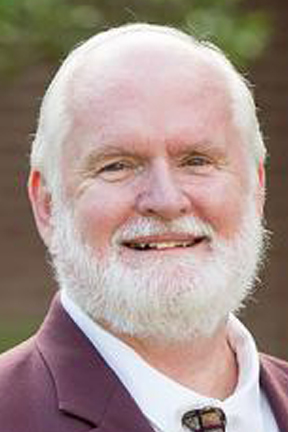Explore the Bible: January 26
Instructions • Exodus 25:1-9; 31:1-6
By Wayne VanHorn

Today’s focus is upon the Lord’s instructions to Moses for constructing the Tabernacle, the visible symbol of His presence among His people. God desires a relationship with His people. We should remember God gave His instructions for protecting the vulnerable (January 19th lesson) before He gave His instructions concerning the Tabernacle. We might infer loving our neighbors precedes and characterizes our religious expression. The prophets decried religion at the expense of the poor (Amos 2:8).
THE TASK (Ex. 25:1-7)
God instructed His people to give for the building of the Tabernacle. This instruction reminded the Hebrews of several important truths. First, the Lord asked for a heartfelt, voluntary offering of materials to build the Tabernacle (Ex. 25:1-2). God’s offering would come from “everyone whose heart stirs him to give.” Giving comes cheerfully when we love God with all our hearts.
Second, every item requested was created by God. When God instructs us to give, we are merely returning to Him what He made in the first place. Everything we have, we received from Him. Giving is an acknowledgment of God’s gracious provision for us.
Third, God provided everything requested at the same time He delivered His people from bondage. By requesting a portion in return, God reminded His people when He delivered them from bondage (Ex. 12:35-36). Their freedom and ability to give was a result of His providential deliverance.
Finally, by following the Lord’s instructions, God’s people actively participated in building His kingdom. The Tabernacle would be located in the center of the camp of the 12 tribes. Individuals throughout the camp offered the materials to construct the sacred tent and its accoutrements. Today, believers participate in the spreading of the Gospel by contributing cheerfully to support missionaries, to train ministers, to feed the hungry, to tend to the sick, and to spread God’s good news to others.
GOD’S PRESENCE (Ex. 25:8-9)
God is holy! Therefore, His dwelling was to be a “holy place,” the meaning of the word “sanctuary” (Ex. 25:8). More importantly, the purpose of the sanctuary was that God “may dwell among them.” The idea of God dwelling among His people is known to theologians as the “Theology of the Presence.” This concept is seen in the Lord personally shutting Noah’s family and the animals in the ark (Gen. 7:16), showing Abram the promised land (Gen. 12:1), calling Moses from the burning bush (Ex. 3:4), giving the name “Immanuel” through Isaiah (Isa. 7:14), and most profoundly, by sending Jesus (John 1:14). God dwells among us; we experience His presence.
The sanctuary was called the Tabernacle, a term derived from the verb “to dwell.” In order for the Tabernacle to be the “holy place,” Moses and the people had to construct the tent and make all the furniture exactly according to the pattern God showed Moses. Obedience to the instructions of the Lord assured the abiding presence of the Lord.
EQUIPPED (Ex. 31:1-6)
God instructed Moses precisely how the Tabernacle and its furnishings were to be made. Interestingly, Moses was not personally gifted to do the work himself. Moses’ job was to be God’s spokesman. God appointed Bezalel, of the tribe of Judah, as the chief craftsman for the project. God filled him with His Spirit, wisdom, understanding, and ability in every craft…” (Ex. 31:2-3). Bezalel was divinely empowered to know how to work with all requested materials (Ex. 31:4-5).
God also called another skilled craftsman, Oholiab, to work alongside Bezalel. Oholiab was from the tribe of Dan. When “the dust had cleared” after the conquest, the tribe of Judah was located in the southern most portion of the country and the tribe Dan, the northernmost. Might we suggest God wanted “all Israel,” from Dan to Judah, to participate in the preparation and building of the Tabernacle? Afterall, Bezalel of Judah and Oholiab of Dan are the only two craftsmen specifically mentioned by name. Exodus 31:6b indicates that God had “placed wisdom within every skilled craftsman in order to make all that I have commanded you.” In a literal rendering of the Hebrew, God had “set wisdom in the heart of every wise heart that they might make all” that He had commanded Moses.
God works the same way today. He equips His people to participate in His kingdom enterprises, just as He did in Moses’ day. To sense His presence, we need only to follow His instructions and use the wisdom He gives us.
VanHorn is a professor of Christian Studies at Mississippi College, Clinton.